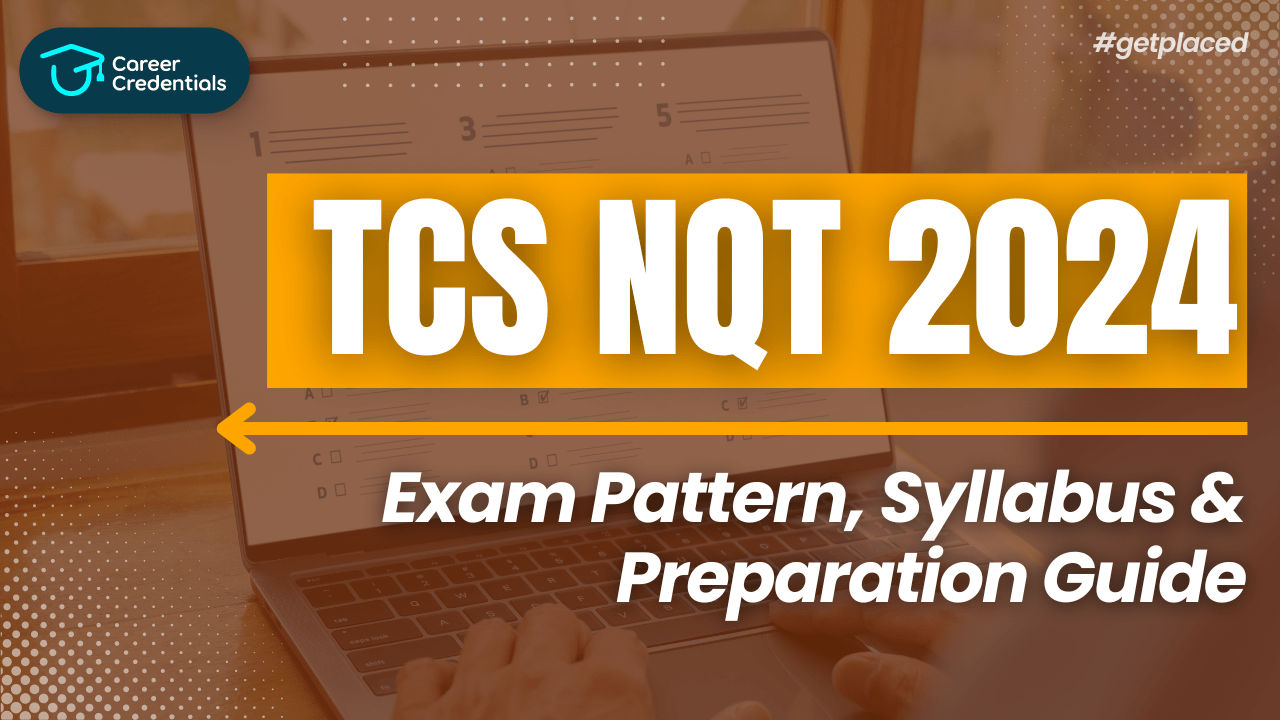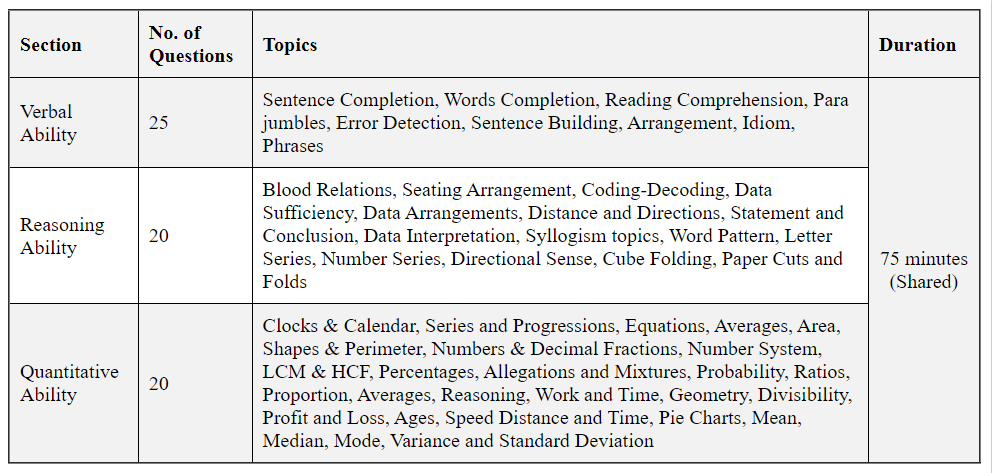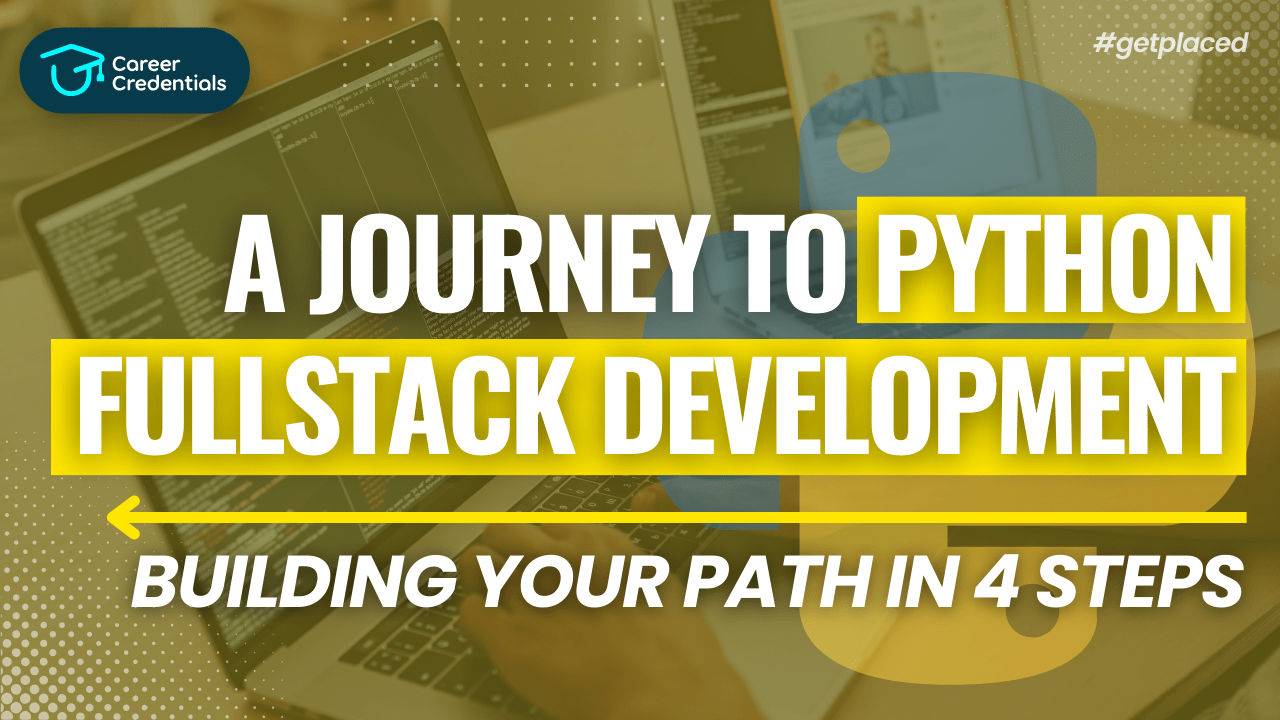TCS NQT 2024 – Exam Pattern, Syllabus & Preparation Guide

In the vast landscape of India's thriving IT sector, Tata Consultancy Services (TCS) stands tall as a beacon of innovation and opportunity. From its humble beginnings to becoming a powerhouse with a market capitalization of $200 billion, TCS has consistently pushed the boundaries of excellence. Let's delve into the gateway to a world of career possibilities - the TCS National Qualifier Test (NQT).
Check Out: Free TCS NQT Preparation Series by Campus Credentials
TCS: A Titan in the IT Realm
TCS has solidified its position as one of the most valuable IT services brands globally, a testament to its relentless pursuit of innovation and quality. Ranking 7th on the Fortune India 500 list, TCS continues to lead the pack with its commitment to excellence.
Enroll Now: Core Java by Dr. Amar Panchal
The Pathway to Success: TCS NQT
The TCS National Qualifier Test (NQT) opens doors for aspiring individuals seeking a career in the IT industry. Let's break down the essentials of this transformative test:
Eligibility Criteria
- Degree Diversity: Students with UG, PG, and Diploma qualifications, whether in their pre-final, final year, or graduates, are eligible.
- Academic Excellence: A minimum of 60% throughout X/XII/Diploma/UG/PG is required.
- No Experience Barrier: Freshers with less than 2 years of experience are welcome to apply.
- Any Specialization: Students from any degree specialization can participate.
Application Process
- Visit the "TCS National Qualifier Test (TCS NQT)" page.
- Click "Register Now" or log in if you're already registered.
- Use your TCS iON Digital Learning Hub credentials or create a new account.
- Fill in the required details accurately.
- Hit "SUBMIT" to complete the Registration.
Exam Structure
The TCS NQT 2024 exam is conducted every two to four weeks, with applications closing 10-15 days prior to the exams. Here's a glimpse of what the exam entails:
Foundation Round (75 minutes & 65 Questions)

Advanced Round (90 minutes & 22 questions)

Job Roles and Opportunities
Your performance in the TCS NQT opens doors to exciting job roles tailored to your skills and aspirations:

Check Out: Full Stack Developer Roadmap by Career Credentials for FREE !!
Conclusion: Your Journey Begins Here
Embark on your journey to success with the TCS National Qualifier Test. Whether you're a Ninja, Digital, or Prime aspirant, TCS offers a platform to showcase your talents and secure a rewarding career in the dynamic world of IT. Don't miss the upcoming exams on 23rd May 2024. Remember, it's not just a test; it's a gateway to limitless possibilities with TCS. Apply, prepare, and seize your opportunity!
Stay tuned for more updates and insights on TCS and the IT industry.
Confused About Your Career?
Don't let another opportunity pass you by. Invest in yourself and your future today! Click the button below to schedule a consultation and take the first step towards achieving your career goals.
Our team is ready to guide you on the best credentialing options for your aspirations.
Let's build a brighter future together!
Empower Yourself. Elevate Your Career at Career Credentials Where Education meets Ambition.
Disclaimer: The information provided here is based on publicly available data and TCS NQT guidelines. Please refer to the official TCS website for the most accurate and updated information.



